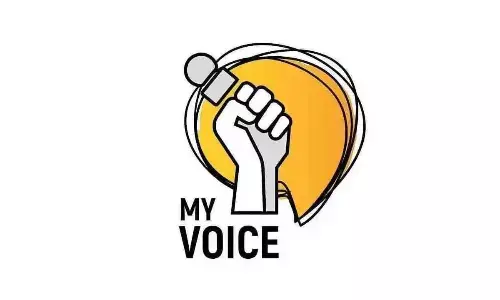Mark sheet or death warrant?

Mark Sheet Or Death Warrant? The rising number of student suicides in the two states forces us to relook at our education system as well as parental and societal pressures.
 The rising number of student suicides in the two states forces us to relook at our education system as well as parental and societal pressures. Can we kill the culture that places undue emphasis on marks, before it destroys our children?
The rising number of student suicides in the two states forces us to relook at our education system as well as parental and societal pressures. Can we kill the culture that places undue emphasis on marks, before it destroys our children?
June 19, 2014: Narsingi -- Class X student D Lavanya (15) hangs herself.
Cause: Reprimanded for poor academic performance
June 14, 2014: Bagh Amberpet -- Praneeth Kumar Reddy, an Intermediate student of Narayana Junior College hanged himself to death in his hostel room.
Cause: Heavy depression.
June 10, 2014: Gutti -- Raghunath Reddy (22), a student of III yr civil engineering at Srikrishnadevarya Engineering College in Gutti committed suicide by jumping in front of a running train.
Cause: Failed in five subjects
June 8, 2014: Hussainialam -- Humiliated for not being able to secure an admission in an English medium school, a 16-year-old Class X student Adarsh Sharma committed suicide at his house.
Cause: Failed in English exam
Of late there has been an alarming rise in the number of student suicides in the two states. More than 15 student suicides were reported in the last eight months. While there are cases of students committing suicides over trivial reprimands, the sad fact that emerges is that most student suicide cases are because of their failure to do academically well.
Overemphasis on marks
One of the top reasons for student suicides is failure to pass examinations. In the case of bright students, it’s about not achieving the desired rank or score. Giving insights into it, B Ebenezer, who was head of Rumi Education Academy and was also with a top coaching institute that churns out rankers,¬¬ says that the pressure on children is fourfold, “First, the student faces pressure of performance that’s internally driven due to various factors. In short, he/she has to live up to his/her own expectations. Second, there’s peer pressure from other students, as well as teachers and management. Third, there’s parental pressure, many parents have unrealistic expectations of their wards. Lastly, there’s societal pressure. Inquisitive aunties and uncles in the neighbourhood and extended family are always ready for comparisons once results are out, making life very difficult for a child who hasn’t scored well in the exams. We have created a culture that places undue emphasis on marks.”
Transition woes: For many adolescent students going to college for the first time, leaving the safe confines of school, can be a difficult transition period. Students may feel lost, lonely, confused, anxious, inadequate, and stressed. And if they live in hostels, the problem just worsens leading to depression. Untreated depression is the number one cause for student suicide.
For some students, the transition becomes more painful when they opt for a change in the language of instruction. Some children who go in for intensive coaching for professional courses come from vernacular mediums. “The additional stress of trying to understand concepts in a new language can demoralise even otherwise intelligent students,” says psychologist Sujatha Raman, who reiterates the fact that knowledge of English is crucial for success in today’s world.
Non-existential parenting: At a time when their wards are going through teen turbulence, most parents are unaware as they are too busy at work or with their social lives to be actively involved in the upbringing and education of their children. Sujatha Raman says, “Thanks to nuclear families and both the parents working, kids return to empty houses and are left to fend for themselves emotionally. In many cases that come to me, the only time when a parent gets involved with their child’s education is at the time of signing the report.”
Wither counselling?
Recognising the fact that parents have majorly flunked in the area of parenting, psychological counselling has been made mandatory in colleges and schools. However, Prashansa Sahani, who studied in a prominent city college says, “The department in our college was there only in name, students were reluctant to go and usually a lecturer would double up as a counsellor. There were no professional psychologists on board.”
While students are reluctant on one hand to approach a college counsellor, the parents too are reluctant to hear about the problems of their wards. Seetha Kiran, principal of DAV Public School Safilguda, says, “Even before counselling was made mandatory we took the precautions to hire two counsellors -- one for education needs and the other to counsel adolescents. We had to do this, because many parents were not ready to accept that their children have a problem.”
A healthy mind in a healthy body:
While a great emphasis is laid on education and learning, not much attention is paid to a child’s physical requirements. “Exercise and a good diet play a key role in battling depression which is a major cause of suicides. Exercise releases hormones that are not only good for brain function, but also for alleviating one’s mood,” says Santosh Macherla, a fitness trainer at Apollo Life Centre. Now, that’s a warning bell for many of the students in the city’s cram schools, who go through such a grinding schedule that they have little time for relaxation, leave alone exercise.
Warning Signs
It should be noted that some people who die by suicide do not show any warning signs. However, 75 per cent exhibit some of these symptoms.
- Appearing depressed or sad most of the time.
- (Untreated depression is the number one cause for suicide.)
- Talking or writing about death or suicide.
- Withdrawing from family and friends.
- Feeling hopeless, helpless and trapped.
- Feeling strong anger or rage.
- Experiencing dramatic mood changes or change in personality.
- Abusing drugs or alcohol.
- Acting impulsively.
- Losing interest in most activities.
- Experiencing a change in sleeping and eating habits.
- Performing poorly at work or in school.
- Giving away prized possession
- Feeling excessive guilt or shame.
Suicide helpline
Roshini: 040-66661117, 66661118










